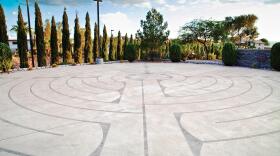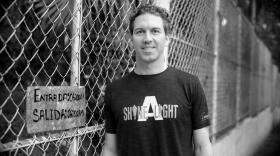Booooring! That much-loathed byword is what propels Co-Op Elementary Homeschool Group, founded three years ago by Gina Morrello. “Growing up, school was boring for me,” says Morrello, 31, who didn’t become interested in learning until she discovered the practical applications of physics. “Regular school is so separated from normal life and it doesn’t look like anything else you encounter,” she says. When her own children were approaching school age, the CSN alumna didn’t want them to repeat her alienating grade-school experience, but instead have something “joyful and playful and meaningful” instead. Inspiration struck. It happened when she was introduced to an open-enrollment program in Santa Clara, Calif. She found “a very rich, flexible environment” for kids. In addition to drawing upon Montessori schooling, which disregards traditional age segmentation, Morrello is influenced by the writings of John Holt. You mean the radical ’60s theorist who contended that traditional, compulsory education actually hinders learning? Yes, that guy. Co-Op Elementary also incorporates the Reggio Emilia method, in which parents are essential, regular participants in their children’s educational experience. Also essential: Critical thinking, gardening and … yoga? Indeed, they’re all integral to the Co-Op curriculum, as are math, history and science. Students can move between activities at will or opt out altogether in order to read, think or converse. “Kids don’t have that independent time to interact with each other” in traditional schools, explains Morrello, which shortchanges their personal development. Hands-on coursework is another key element. Morrello wants her pupils to learn through the real-world applications of what they’re studying. In standard grade school, “they’re going to get certain pieces of information at certain times when they may or may not be relevant. Relevance is everything,” says Morrello. For example, her way of teaching language is to turn kids loose on, say, Star Wars novels. It’s more important, Morrello argues, to get them interested in literature they’ll enjoy, “not ‘See Dick run’ kind of reading programs,” she says. “Just let it flow,” she says. “Then you start working on the mechanics.” Public service is emphasized, too. Morrello would like to see her pupils eventually enter internships and community service. “What good is it to know a bunch of abstract facts,” she says, “if you’re not able to talk to your neighbor and solve things peaceably?” She’s reaching out to her own neighbors, too, in decidedly modern manner. Recruiting via social networking, Co-Op Elementary ( www.coopelementary.org) is up to 25 full- and part-time instructors. “And it’s been magical,” Morrello says. She hopes to expand that magic into advanced coursework, such as the study of Leonardo da Vinci. At Co-Op, you can bet that class will involve paint — lots of paint.
© All Rights Reserved 2026 | Privacy Policy
Tax ID / EIN: 23-7441306
Tax ID / EIN: 23-7441306

Play Live Radio
Next Up:
0:00
0:00
Available On Air Stations
Supported by








